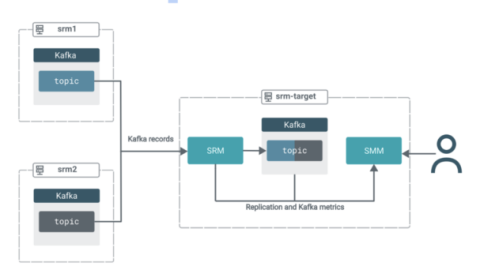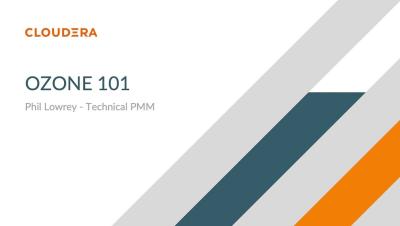Using Streams Replication Manager Prefixless Replication for Kafka Topic Aggregation
Businesses often need to aggregate topics because it is essential for organizing, simplifying, and optimizing the processing of streaming data. It enables efficient analysis, facilitates modular development, and enhances the overall effectiveness of streaming applications. For example, if there are separate clusters, and there are topics with the same purpose in the different clusters, then it is useful to aggregate the content into one topic.











